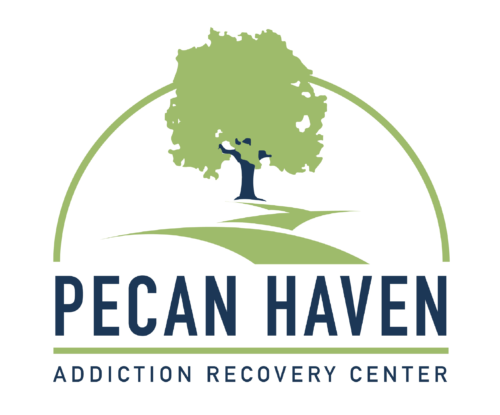Spring break can be a challenging time for individuals in recovery. The social gatherings, trips, and festive atmosphere often present environments where alcohol, drugs, or other triggers are prevalent. Managing triggers during spring break is essential for staying on track with your recovery and preventing relapse. This guide provides actionable tips and strategies to help you navigate the season while maintaining your sobriety.
Understanding Triggers During Spring Break
Spring break can heighten exposure to various triggers, making it critical to recognize and prepare for them. Triggers can be internal, such as stress or loneliness, or external, like being in environments where substances are present. Common triggers during spring break include:
- Peer pressure at parties or social gatherings.
- The presence of alcohol or drugs in recreational settings.
- Emotional challenges, such as feeling left out or overwhelmed.
- Stress from travel plans or disrupted routines.
Being proactive about identifying and managing these triggers can significantly reduce the risk of relapse.
Plan Ahead to Stay in Control
Preparation is your best defense against triggers. Planning ahead ensures you’re ready to handle challenging situations without compromising your recovery.
Choose Sober-Friendly Destinations
If you are planning to travel, research destinations that cater to a sober lifestyle. Many resorts and retreats offer substance-free environments and activities, providing a safe and supportive atmosphere. Look for destinations that emphasize relaxation, outdoor activities, or wellness programs.
Pack Recovery Essentials
Prepare a recovery toolkit to help you stay grounded. Include items such as:
- A journal for processing emotions.
- Recovery literature or books.
- Contact information for your support network.
- Affirmation cards or reminders of your reasons for sobriety.
Have a Plan for Social Events
If you plan to attend social gatherings, set clear boundaries and stick to them. Practice declining offers of substances with responses like, “No thanks, I’m focusing on my health.” Have an exit strategy ready in case you feel uncomfortable or triggered.
Build a Support System
Having a solid support system is essential for managing triggers during spring break. Surround yourself with people who respect your recovery and can help you stay accountable.
Stay Connected to Your Recovery Community
- Attend local 12-step meetings or virtual support groups while traveling.
- Reach out to your sponsor or a trusted peer if you’re feeling vulnerable.
- Use apps or online forums to connect with others in recovery.
Involve Supportive Friends or Family
Traveling with someone who shares or supports your sobriety can help you stay grounded. Choose companions who encourage healthy, substance-free fun. Surrounding yourself with understanding individuals reduces feelings of isolation and strengthens your resolve.
Create a Relapse Prevention Plan
A relapse prevention plan can serve as a roadmap to guide your decisions and actions during challenging situations.
Identify High-Risk Scenarios
Write down potential triggers, such as attending a party or facing travel-related stress. Create specific strategies to handle each scenario, like practicing a refusal script, avoiding risky environments, or staying with supportive friends.
Establish Daily Recovery Goals
Set achievable daily goals to keep yourself focused. These could include attending a meeting, journaling, or engaging in a healthy activity. Small, consistent efforts help maintain your recovery momentum.
Practice Coping Mechanisms
- Use mindfulness techniques like deep breathing or meditation to manage stress.
- Engage in physical activities like walking, yoga, or swimming to boost mood and energy levels.
- Practice gratitude by reflecting on the positive aspects of your recovery journey.
Self-Care During Spring Break
Prioritizing self-care can strengthen your resilience and help you navigate triggers.
Prioritize Healthy Nutrition
Spring break often disrupts eating habits, but maintaining a balanced diet is crucial for emotional and physical stability. Incorporate nutrient-dense meals and snacks to sustain energy and reduce stress.
Stay Physically Active
Exercise is a powerful way to combat stress and improve mood. Whether it’s a hike, a bike ride, or yoga on the beach, staying active keeps you engaged in positive experiences.
Reward Yourself
Celebrate milestones in your recovery by treating yourself to a relaxing activity, such as a spa day, a hike, or a creative hobby. Positive reinforcement helps build confidence and motivation.
Recognize and Manage Emotional Triggers
Spring break isn’t just about physical environments – it can also stir up emotions like loneliness, stress, or fear of missing out (FOMO). Recognizing emotional triggers is just as important as avoiding external ones.
Acknowledge Your Feelings
Give yourself permission to feel and process emotions. Journaling, talking to a trusted friend, or practicing mindfulness can help you work through complex feelings.
Replace FOMO with Gratitude
It is easy to feel left out when others engage in activities that don’t align with your recovery goals. Shift your focus to gratitude for the positive changes sobriety has brought to your life.
FAQs About Triggers During Spring Break
-
How can I avoid peer pressure while on spring break?
Communicate your boundaries upfront and have a polite but firm response prepared, such as “I’m choosing not to drink because I’m focusing on my health.” If needed, leave situations that make you uncomfortable.
-
What should I do if I feel tempted?
Reach out to your sponsor or a trusted member of your support network. Practice grounding techniques like deep breathing or go for a walk to clear your mind.
-
Are there substance-free events or activities available during spring break?
Yes, many communities and travel destinations offer sober events or alternative activities. Research ahead to find options that align with your interests and recovery goals.
Call to Action: Seek Support When Needed
Managing triggers during spring break is possible with preparation, support, and a commitment to your recovery. However, if you feel overwhelmed or need additional help, don’t hesitate to reach out for professional guidance.
At Pecan Haven Addiction Recovery Center, located in Monroe, Louisiana, we provide comprehensive treatment options tailored to your needs. From residential treatment programs to intensive outpatient care and residual detox services, we’re here to support you every step of the way. Whether you’re managing triggers, preventing relapse, or seeking help for alcohol addiction, drug addiction, or dual diagnosis, we offer compassionate care and evidence-based solutions.
Contact us today at (318) 600-3333 to take the next step in your recovery journey. Together, we can help you achieve lasting sobriety.

